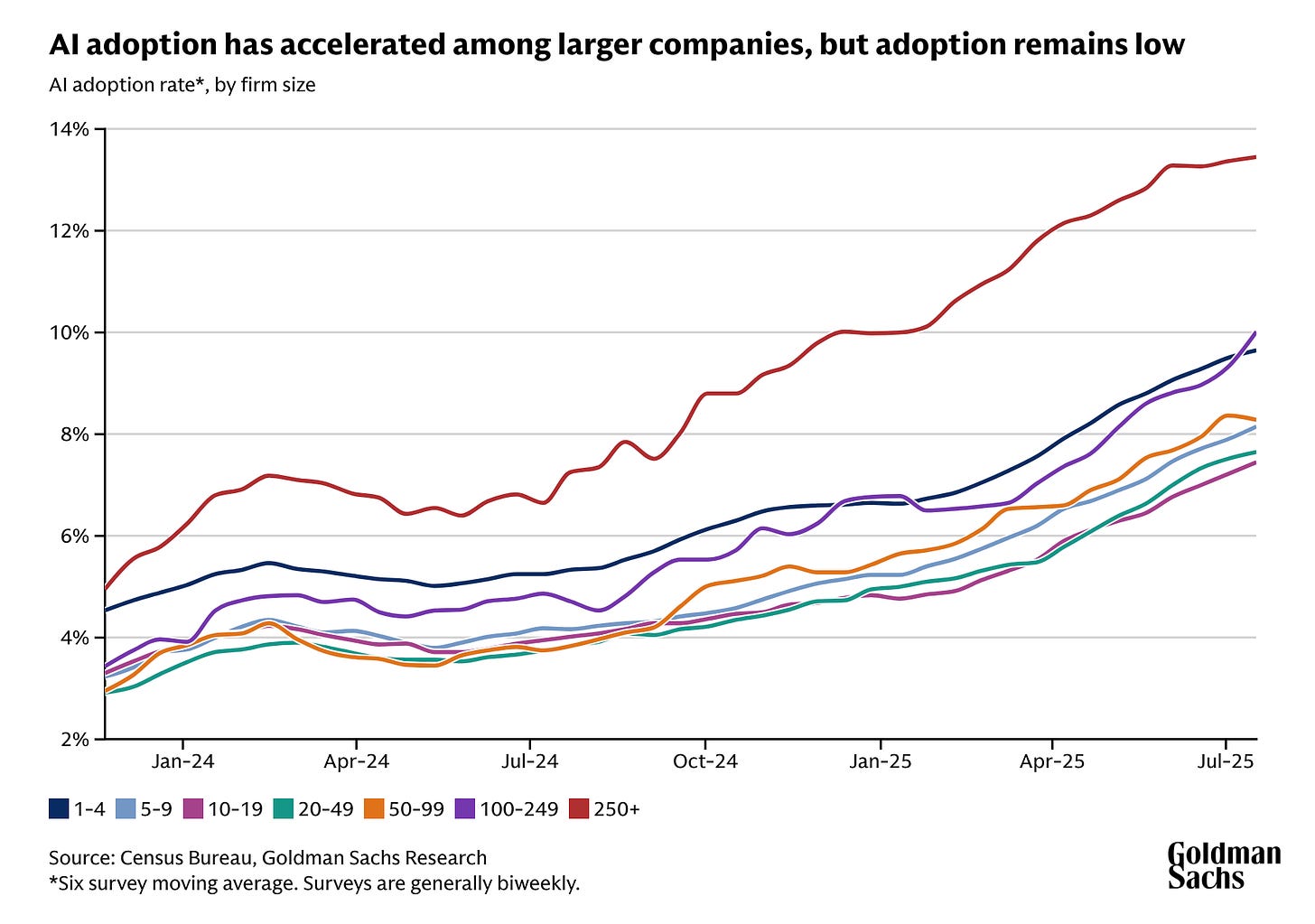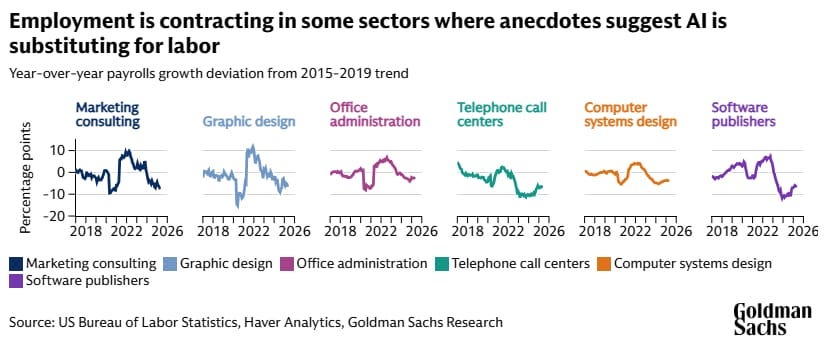Growth Ritual #78
📋 In This Issue:
How AI Will Transform the Global Workforce
The Gaming Industry Just Quietly Crossed a Massive AI Tipping Point (And Nobody's Talking About It) — Upgrade to read
The 40-Year-Old App That Just Became Every Hacker's Favorite Weapon (And It's Probably on Your Computer Right Now) — Upgrade to read
The Desert Buildings That Will Decide Your Next Paycheck — Upgrade to read
How AI Will Transform the Global Workforce
I want to dive into a topic that's on everyone's mind: how AI is going to affect the global workforce.
Goldman Sachs recently published a fascinating article on this, and I'm breaking it down for you.
The Productivity Boost
First up, let's talk about productivity. Goldman Sachs' economists predict that generative AI will boost labor productivity in the US and other developed markets by around 15% when fully adopted.
That's a massive leap forward!
Imagine getting 15% more done in the same amount of time.
It's like having an extra hour or two in your workday without actually working longer.
The Temporary Unemployment Hurdle
But with great power comes great responsibility—and some challenges.
During the transition period, we might see a half-percentage-point rise in the unemployment rate.
That means if the unemployment rate is currently 4%, it could go up to 4.5%.
But don't panic!
This bump is expected to be temporary. Historically, technological advancements have caused short-term job displacement, but things usually balance out after about two years.
Job Displacement: The Numbers Game
Now, let's get into the nitty-gritty of job displacement.
Goldman Sachs estimates that 6-7% of jobs could be displaced by AI.
But here's the kicker: that number could vary widely, from as low as 3% to as high as 14%, depending on how quickly AI is adopted and integrated into different industries.
The Two Faces of Unemployment
There are two ways AI could potentially increase unemployment:
Structural Unemployment: If AI becomes so advanced that it replaces human labor in many areas, we could see persistent job losses. But Goldman Sachs Research thinks this is unlikely. Why? Because technology has a history of creating new jobs. In fact, 60% of US workers today are in occupations that didn't exist in 1940. So, while some jobs might disappear, new ones will likely emerge.
Frictional Unemployment: This is the more immediate concern. As AI displaces workers, there will be a period where these workers are looking for new jobs. This type of unemployment is common during rapid technological changes and is usually temporary.
Are We Seeing Job Losses Already?
You might be thinking, "Is this already happening?" Well, some tech and finance executives are reporting that AI is making their operations more efficient, leading them to slow down hiring in certain areas.
But overall, AI adoption is still relatively low, especially among smaller companies.
In a recent survey, only 9.3% of US companies said they had used generative AI in their regular workflows over the past two weeks.
So, while there are some early signs, the widespread impact is yet to come.
Industries on the Front Lines
Some industries are already feeling the heat. Marketing consulting, graphic design, office administration, and call centers are seeing slower job growth due to AI.
But the good news is that only 2.5% of US employment is currently at risk if current AI use cases expand across the economy.
The Future: Which Jobs Are at Risk?
Looking ahead, Goldman Sachs researchers have identified the jobs most at risk of being displaced by AI:
Computer programmers
Accountants and auditors
Legal and administrative assistants
Customer service representatives
Telemarketers
Proofreaders and copy editors
Credit analysts
On the flip side, jobs that are least likely to be displaced include:
Air traffic controllers
Chief executives
Radiologists
Pharmacists
Residential advisors
Photographers
Members of the clergy
AI is coming, and it's going to change the way we work. But it's not all doom and gloom. While there will be challenges, history shows that technology creates as many opportunities as it disrupts. The key is to stay adaptable, keep learning, and be ready to pivot when needed.
So, what do you think? Are you excited about the possibilities of AI, or are you worried about its impact on jobs? Let me know in the comments below!



